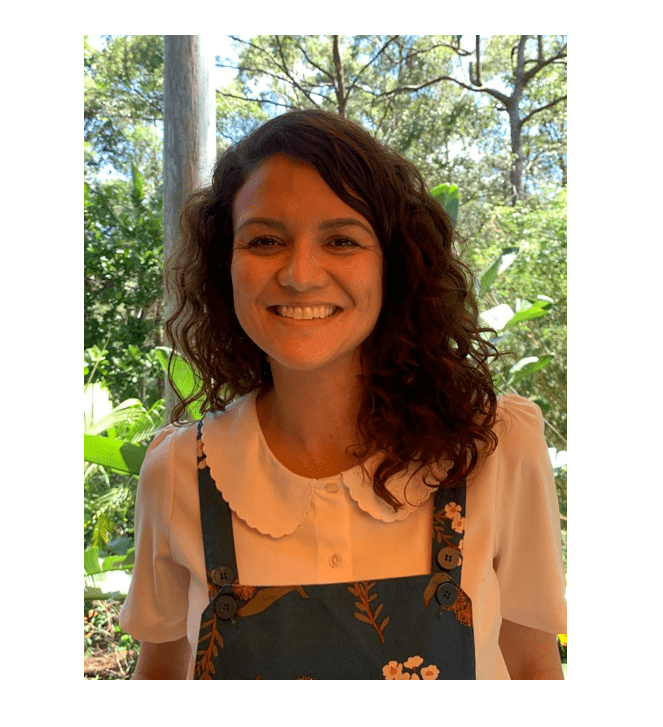In 2016 and 2018, three refugees detained in offshore detention centres by Australia successfully argued Australia had failed in its duty of care when they were refused access to the mainland for essential medical care.
The Medevac law was introduced in response to cases like these. It was a short-lived policy that streamlined the medical transfer process for offshore detainees, if two doctors deemed the treatment necessary.
Simone Cameron, who has recently completed a UNE Bachelor of Laws with Honours, was volunteering at the Human Rights Law Program at the Asylum Seeker Resource Centre in Melbourne, on a project that advocated for the release into the community of people who had been medically transferred to Australia, either through the Medevac laws or the strategic litigation which preceded the Medevac laws.
After witnessing the real-world impacts of government policy and rhetoric, she decided to use her background in Linguistics (having completed a Master of Applied Linguistics previously at UNE) to begin a cross-disciplinary honours thesis to help her expose what was at play.
“I was horrified at the way that Australia has treated people who sought Australia’s protection, and that Australian people have allowed this maltreatment to continue as long as it has: many of these people have been in detention for up to nine years,” she said.
Through her volunteering and research, she began to appreciate the power of the nuance of words in the application of the law, particularly when it comes to the Medevac laws.
“I began to understand through this research just how central the language is to the policy – the language justifies the policy. In order to repeal the Medevac laws, laws which gave sick people access to medical treatment, the government needed to create a sense of threat and fear about their continued operation.
“They did that by linking the Medevac laws back to the issue of boat arrivals and border protection, which subsumed the one narrow issue into the broader border policy debate. This served to heighten the significance of the Medevac laws, which were actually quite narrow in their application.”
She was struck by how such a complex issue was brushed over and simplified in some of the parliamentary speeches pushing for the Medevac laws to be repealed.
“The asylum seekers who were subject to the laws were discursively ‘othered’, which reflects a systematic attempt to justify punitive policies that would otherwise be unpalatable to the citizenry,” she said.
She hopes by helping expose the smoke and mirrors of language tactics used in government policy and debates, people might become more critical of the issues around the refugee crisis.
“This research has helped me to understand how important it is to keep trying to reframe the debate about people who seek asylum by sea, to offer alternative narratives in a space where the government’s discourse has stymied genuine debate.
“I would hope that research projects like this encourage people to be more critically aware of the way politicians are framing certain issues for their own political gain.
“Governments create immigration policy and have greater access to media than most people, and therefore exercise a high level of control over the narrative about asylum seekers. I hope people strive to find alternative sources of information so they can be better informed.”
After receiving First Class Honours for her project Political justification for law reform: the repeal of the Medevac law, supervised by Dr Cindy Schneider, Simone continues to balance her learning with work and volunteering in the refugee space.
She’s completing a Graduate Diploma of Legal Practice while working as a paralegal at the Refugee and Immigration Legal Service in Brisbane, on the Afghan Response project.
She’s also part of the ‘Home to Bilo’ campaign advocating for the ‘Biloela family’, a Tamil family whose plight to be released from detention and remain in Australia has regularly hit headlines.
“Their battle to stay in Australia has often hit the headlines, and various politicians have expressed opinions about whether the family should be released from detention and allowed to resume their lives in Biloela,” she said.
“I think my research has helped me to understand the importance of refusing to be drawn into certain frames, essentially to ‘stay in your own discursive lane,’ so to speak.”
Simone hopes to be admitted to the Supreme Court as a solicitor later this year.
Note: The remaining Medevac refugees who had been detained in Australia after being brought for medical treatment were released by the government on 7 April.



Well done, Simone. The big question: how do we go about reaching a broad audience? I have my doubts about the effectiveness of social media. People seem to operate in their closed little echo chambers so my sharing a post such as this may well be preaching to the converted.